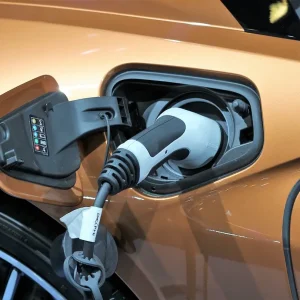Raising fuel duty would not be enough on its own to encourage fleets towards a greener future.
That’s the view of Paul Holland, chief operating officer at fuel card provider Fleetcor.
He was reacting to a report by former UK Government transport adviser Professor David Begg and Claire Haigh, calling for the government to end its freeze on fuel duty.
The report, ‘The Unintended Consequences of Freezing Fuel Duty’, which has been released by sustainable transport campaign group Greener Journeys, states that, since 2011, when the freeze came into effect, traffic has increased by 4% and produced an additional 4.5 million tons of CO2, including 2.8 million tons from cars and taxis, along with an extra 12,000t of NOX.
The report adds that, in reality, the figures may be even worse than those quoted, due to the effect of traffic congestion, which causes increased emissions.
It therefore calls for the government to end the freeze and honour its commitment to increase fuel duty, at least in line with inflation, at the next budget.
The report states, “The result of seven years of fuel duty freezes is that the price of fuel at the pump is 13% lower than it would otherwise have been.
“While the freeze has been welcomed by many road users and has undoubtedly been of benefit to people struggling on low incomes dependent on car travel, there have been some unintended consequences.
“Currently, price signals are leading to worsening pollution and congestion. For the first time since 2000, the CO2 emissions from the average car sold in the UK have increased.”
The report adds that cheaper fuel prices, combined with the improved efficiency of vehicles, has encouraged consumers to purchase larger vehicles, with an increase in demand for SUVs.
In addition to raising fuel duty, the report also calls for policies to encourage people to switch from cars to public transport, walking and cycling, and for the government to move to a new model for paying for road use in the medium to long term, due to the anticipated increase in the number of electric cars.
Holland said that the government should consider other methods besides tax to help fleets move towards a more balanced mix of fuels.
He told BusinessCar, “The report is to be welcomed as part of a wider industry movement towards an environmentally friendly future. However, while the government can use tax to positively steer business behaviours towards this future, it must consider other factors to help the industry transition towards a more balanced solution.
“Following the government’s decision to ban the sale of new petrol and diesel vehicles from 2040, for example, there has been much debate around the introduction of alternative-fuel vehicles to reduce the negative impact of fossil fuel emissions.
“However, the infrastructure to support alternative fuels, including hydrogen and electricity, is not yet widely available, making it very difficult for businesses to consider using them.
“Additionally, vehicle ranges, whole-life costs and other operational affecting factors are still developing, further complicating companies’ decision-making.”
Holland said that research by Fleetcor-owned Allstar Business Solutions showed that 75% of UK businesses do not have a clear policy on alternative-fuel vehicles, indicating confusion as to the best way forward.
He said, “This is further confused by a distinct lack of guidance from the government in helping businesses to implement measures to reduce their transport-derived environmental footprint in an economically viable way.
“In fact, data from the Society of Motor Manufacturers and Traders suggests many fleet operators are running older vehicles for longer and delaying new purchasing decisions. in the absence of any clear direction as to the sustainability of alternative fuels in the short to mid-term future.”
Holland added, “Fleetcor recommends that the government conducts comprehensive consultation with all industry stakeholders to reach a multifuel solution that is economically viable and environmentally friendly.”
RAC roads policy spokesman Nicholas Lyes said, “Millions of motorists and businesses are going to baulk at the idea of fuel duty rising in the autumn.
“Petrol and diesel prices are currently at a three-and-a-half year high and there is the prospect of them reaching record levels if the oil price continues to climb.
“In this scenario, we should be talking about the government acting to help bring prices back into check by lowering fuel duty to protect the economy – not putting up tax on fuel.”
Lyes added that he would question whether raising fuel duty would actually stop people driving or just mean those with no alternative would pay more, while contributing to increased inflation.





